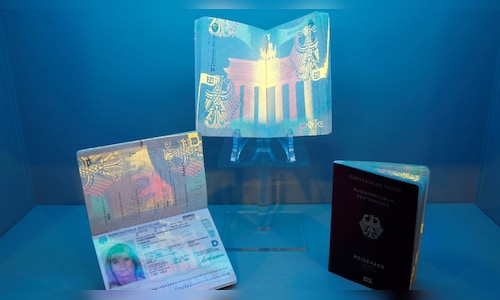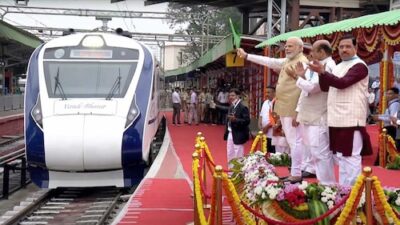When were e-passports introduced in India?
India embarked on its digital travel journey with a phased rollout of chip-enabled e-passports
designed to improve security, shorten immigration processing times, and meet international standards. These new passports represent a major upgrade from the traditional booklet-style versions.
The program was initiated under the Passport Seva Programme (PSP) 2.0 on April 1, 2024, and is currently being tested in passport offices across cities such as Chennai, Hyderabad, Bhubaneswar, Surat, Nagpur, Goa, Shimla, Raipur, Amritsar, Jaipur, and Ranchi. The government plans to expand this service nationwide.
What is an e-passport?
The Indian e-passport features a conventional paper booklet combined with an embedded Radio Frequency Identification (RFID) chip and antenna. This chip securely holds the holder’s biometric information, including fingerprints and a photograph, alongside personal details. A gold-coloured emblem on the front cover distinguishes e-passports from standard ones.
Also read |
How to renew your Indian passport hassle-free online or offline
How to apply for an e-passport
Applicants can utilize the existing online process through the Passport Seva website. If they are in an area where the e-passport rollout has commenced, the chip-enabled document will be issued as part of the standard application or renewal procedure. A nationwide rollout is anticipated in the upcoming months.
The introduction of e-passports aims to modernize travel infrastructure and protect citizens in an increasingly interconnected world. As adoption grows, Indian travelers can anticipate a future marked by smooth and secure international travel.
E-passports offer several advantages to Indian travelers, including improved security since the embedded chip contains digitally signed biometric data safeguarded by public key infrastructure. This enhances security and decreases the possibility of forgery or data manipulation.
Additionally, e-passports will expedite immigration and enable contactless identity verification at border controls, which reduces wait times and streamlines the immigration experience. A key benefit is their global compatibility, designed according to International Civil Aviation Organisation (ICAO) standards.
Do you need to replace your current booklet passport?
Currently, there is no obligation for existing passport holders to upgrade to an e-passport. Traditional passports will continue to be valid until their expiration date. However, new applicants and those renewing in specified cities may receive e-passports as part of their application process.



